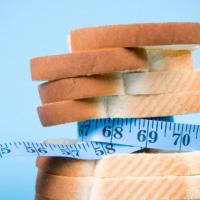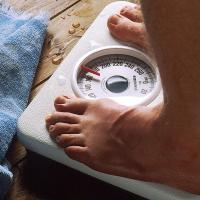Why Low Carb Diets Work? The Mechanism Explained
Low-carb diets work by restricting the intake of carbohydrates, which forces the body to burn fat for fuel instead of glucose. This process, called ketosis, can lead to a number of health benefits, including weight loss, improved blood sugar control, and reduced risk of heart disease.
Here's a more detailed explanation of the mechanism behind low-carb diets:
* When you eat a high-carb diet, your body converts those carbs into glucose, which is then used for energy. Glucose is the body's preferred source of energy, so when you eat a lot of carbs, your body will burn them off first before it starts burning fat.
* When you restrict your carb intake, your body's glucose stores will eventually run out. This forces the body to start burning fat for fuel instead. The process of burning fat for fuel produces ketones, which are a type of molecule that can be used for energy by the brain and other organs.
* Ketosis can lead to a number of health benefits, including:
* Weight loss: When you burn fat for fuel, you lose weight.
* Improved blood sugar control: Low-carb diets can help to improve blood sugar control in people with type 2 diabetes.
* Reduced risk of heart disease: Low-carb diets can help to lower cholesterol and blood pressure, two major risk factors for heart disease.
* Low-carb diets are not for everyone. Some people may experience side effects such as fatigue, headaches, and nausea when they first start a low-carb diet. These side effects usually go away within a few weeks. If you have any concerns about starting a low-carb diet, talk to your doctor.
Here are some tips for starting a low-carb diet:
* Start slowly. Don't try to cut out all carbs overnight. Start by reducing your carb intake by 5-10 grams per day.
* Choose healthy carbs. When you do eat carbs, make sure to choose healthy carbs such as fruits, vegetables, and whole grains.
* Increase your intake of healthy fats. Healthy fats such as olive oil, avocados, and nuts can help to keep you feeling full and satisfied on a low-carb diet.
* Stay hydrated. Drink plenty of water to help flush out ketones and prevent dehydration.
* Talk to your doctor. If you have any concerns about starting a low-carb diet, talk to your doctor.
-
Make Low Carb Cheesecakes Part Of Your Diet!
Keeping to any diet is always difficult and if you have been struggli
-
Low Carb Information
Do
-
Low carb diets best bet to achieve lasting weight loss
燗 new study has found diets that reduce the surge in blood
-
Handy Tips For Regulating Blood Sugar Safely And Naturally
Contrary to what lots of people think, diabetes can sometim
-
Meals For Low Carb Dieters
With so many diets to choose from, how will you know which one is the
-
Low Carb Priciples For Dieters
So you are fresh to a low carb way of dieting are you? If so, there i
- Low Carb
- Whats Up With Self-sabotage?
- No Carb Foods
- Curry Green Beens and Tofu by the Zone Diet
- Dont Waste Time With Low Carb Diets
- A Detailed Guide: Low Carbohydrate Diet Food
- Atkins Low Carb Diet Related Health Questions Answered
- Top 10 Low Carbohydrate Foods for Your Fat Shredding Diet Plan
- Losing Weight With Pcos - Low Carb May Help Insulin Response
- Simple Tips For Easy Weight Loss
- 5 Tips For Low Carb Diets & Alcohol



